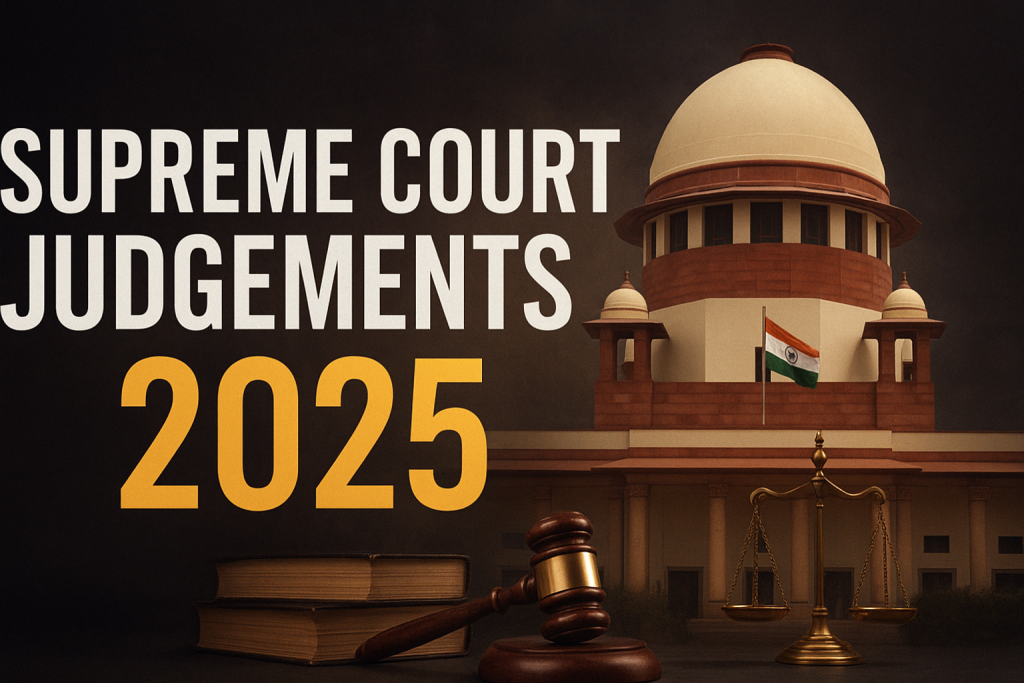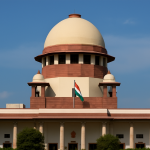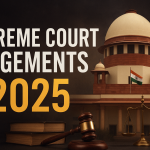Case Title: MITC ROLLING MILLS PRIVATE LIMITED AND ANR. VERSUS M/S. RENUKA REALTORS AND ORS.
Hon’ble Judges: Justice Vikram Nath and Justice Sandeep Mehta
In a significant clarification, the Supreme Court of India has held that an order rejecting a plaint under Order VII Rule 11 of the Code of Civil Procedure (CPC) is appealable under Section 13(1A) of the Commercial Courts Act, 2015. Conversely, an order refusing to reject a plaint is not appealable. This ruling addresses a recurring procedural question that has caused confusion in commercial litigation, particularly regarding what constitutes an “appealable order” under the Act.
The case arose from a commercial dispute in which a plaintiff company filed a suit for the recovery of approximately ₹2.5 crore. The defendant sought the rejection of the plaint under Order VII Rule 11, arguing that the plaintiff had failed to comply with the mandatory pre-institution mediation requirement under Section 12A of the Commercial Courts Act. The trial court accepted the defendant’s argument and rejected the plaint. When the plaintiff appealed to the High Court under Section 13(1A), the High Court dismissed the appeal as non-maintainable, claiming that such an order was not one of the “interlocutory orders” specified under Order XLIII CPC and therefore could not be appealed.
Upon further appeal, a Division Bench of the Supreme Court, consisting of Justices Vikram Nath and Sandeep Mehta, disagreed with the High Court’s interpretation. The Court explained that the main provision of Section 13(1A) allows an appeal against any judgment or order of a Commercial Court. The proviso simply restricts appeals concerning interlocutory orders. When a plaint is rejected, it effectively results in a final adjudication—a decree—and thus falls within the main provision of Section 13(1A). The proviso should not be interpreted narrowly to limit appeals against decrees or final orders.
In contrast, the Court clarified that when a Commercial Court refuses to reject a plaint, such an order is interlocutory in nature and does not terminate the proceedings. Therefore, no appeal can be made against it under Section 13(1A), and the aggrieved party must pursue other remedies, such as a revision or a petition under Article 227 of the Constitution.
Moreover, the Court distinguished its ruling from earlier cases, including Bank of India v. Maruti Civil Works (2023), which dealt with the refusal to reject a plaint, rather than its rejection. By making this distinction, the Supreme Court provided much-needed clarity on the appealability of orders under the Commercial Courts Act, ensuring that litigants and courts understand when appellate jurisdiction can be invoked.
Ultimately, the Supreme Court allowed the appeal, overturned the High Court’s finding on maintainability, and restored the appeal for a hearing on the merits. This judgment ensures that parties whose plaints are rejected under Order VII Rule 11 have a remedy and can seek appellate review under the Act.
This ruling carries considerable practical importance in commercial litigation. It emphasizes that the nature of the order — whether final or interlocutory — determines the right of appeal, not merely the procedural form. The Court’s reasoning also strengthens the harmonious interpretation of Section 13(1A), ensuring that its main provision is not overshadowed by the restrictive language of its proviso.



